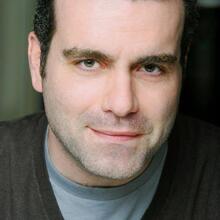I don’t think I am unique in that I go through phases of rewatching landmark television series, be it “Seinfeld,” “The Mary Tyler Moore Show” or “Friends.” I become attached more strongly to one character than to another and that attachment shifts as time passes. That is the unique and beautiful thing about episodic television and the reruns that it engenders: There is both a quantitative and repetitive element to it not really found in other media (save perhaps for some genre novels). It allows for a relationship between the viewer and characters that evolves over time.
If the show happens to be a cultural institution like “Friends” and plays on in reruns seemingly in perpetuity, the viewers’ understanding and appreciation of the characters on the show shifts noticeably as decades pass. Where 20 years ago when you were in your 20s you felt more affection for the quasi-adolescent buffoonery of Kramer on “Seinfeld,” now in your forties, you feel more of a kinship with the detached, observational mode of Jerry.
What do you do when literally the entire world loves you, but not you?
I was one of presumably millions of Gen-X young men and women in the 1990s who found in Chandler Bing a kindred spirit. Sarcastic, insecure Chandler was the “everyperson” of “Friends,” the “ordinary” guy within the extraordinary television world in which he existed. He also happened to be the funniest guy in the room. Joey had the looks, Ross had the brains and Chandler was the funny one.
Indeed, Chandler’s use of humor to deflect from dealing with real feelings and emotions was one of the fundamental tropes of the show. Another was that no one knew what Chandler actually did for a living. He had, like so many, an anonymous, mid-level role in an anonymous, mid-level company that would never prove to be the reason that he got out of bed in the morning. Like every character on “Friends” and consistent with most American young adults' experience of life in their 20s, Chandler was adrift. He was full of insecurity, fear and the desire for something to give his life meaning.
Because he was a fictional character in a television series, Chandler found the meaning in his life that he yearned for in Monica. As the series ended, Chandler had his happy ending, moving out to the suburbs to start a family with his wife. Matthew Perry, on the other hand, has yet to have his happy ending. Addiction frequently does that: It prohibits those under its thrall from any semblance of peace, at least in the here and now.
What little I do know of Matthew Perry is that even as he struggled with his own addictions, he was expansively helpful to others struggling with theirs.
I knew Chandler Bing. I knew him well. He was my favorite character when I began watching “Friends” in its first run in the 1990s. I liked to think I was like him, the “Chandler” of my own 20-something friend group. Sarcastic, insecure, using humor as a coping mechanism for the very real pain rumbling within me. Of course, I was not as funny or good-looking as Chandler, because I did not have some of the best writers on television crafting my one-liners. And, well, I also did not look like Matthew Perry. Sadly, Matthew Perry was not Chandler either; he just bore a striking resemblance to him.
Of course, part of Perry shaped who Chandler was, but most of him seems to have been in far more pain; the kind of pain that could not be remedied with a caustic one-liner constructed in a writer’s room in Los Angeles.
As time has passed, I have moved on from Chandler; now, barely still in my 40s, I find Phoebe’s practical whimsy far more enticing. Chandler is still funny, but he is also very much his age, a young, white man in his 20s. I do not know Matthew Perry. What I do know is that he struggled mightily with drugs and alcohol (60 treatment centers in 30 years), and he was found dead alone in a hot tub in his home last week, too young, at the age of 54.
I do not pretend to know the pain Matthew Perry went through. I have no desire to make proclamations about how fame and fortune are not the antidote for anything, as Perry himself said publicly more than once. What little I do know of Matthew Perry is that even as he struggled with his own addictions, he was expansively helpful to others struggling with theirs. Last year he told his story in his memoir, Friends, Lovers, and the Big Terrible Thing where he spoke of his addiction issues and continual attempts at recovery.
In penning his story, he allowed the public a view of that significant portion of himself that was NotChandler: a man in a lot of pain who just happened to create a character loved by most of the global population. What do you do when literally the entire world loves you, but not you?
Ultimately, all I would like to do is say how sorry I am; sorry for the death of Matthew Perry and sorry that life is not more like a sitcom. I trust that Matthew Perry will soon find what he is looking for.








